With every session that passes, the hope is that campers’ experiences will inspire them and give them the tools they need to have more successful relationships, studies, and careers back home—which, in turn, will allow them bring about the positive change this world needs.
So what do all those hours in dialogue and Group Challenge amount to in real life? As another summer draws to a close, we caught up with several staff members who were once campers themselves to share a few of the skills and lessons that served them far beyond the gates of Camp.
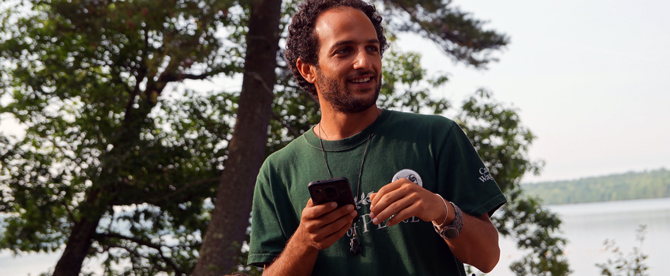
1. Be a reflection.
“As staff we’re taught to be reflective for the kids—to listen actively, to ask questions and not react, to be less reactionary and more intentional,” says Mostafa (Moose) (2006 Egyptian Delegation).
“It’s been so helpful in the workplace—you learn how your boss would want to see a task happen and how specifically they want it to happen.”
Moose is the Co-Program Coordinator at Camp.
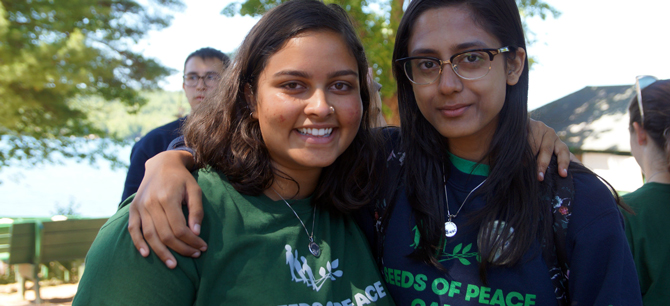
2. Create safe environments for others.
“Watch for signs that someone is doing something they’re not comfortable with,” says Ranya (2013 Syracuse Delegation). “You’ll see the transformation in a person just by telling them, especially when they’re struggling, ‘I see you and you’re doing great.’ You create a bond with people because they see that you’re looking out for them and paying attention. Being encouraging makes them more present, more willing to learn.”
Ranya is a 2018 Camp Counselor and a rising senior at American University.
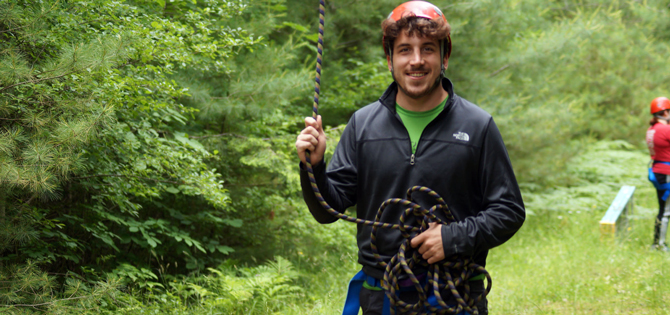
3. Always bring your full self.
“Don’t hide any parts of your identity,” says Almog (2009 Israeli Delegation). “That’s how people who are working with you or supervising you know who you really are, and it’s much easier to communicate or to achieve any goal.”
During last summer as a counselor, he said he had been hesitant to share details of his life with his campers.
“This summer, I decided to be my full self,” he says. “Eventually I got to the conclusion that if I’m honest about who I am with them, they will be more honest with me, and we can achieve much more when we’re being honest.”
Almog is a 2018 Camp counselor and will begin studying international relations and political science at Hebrew University this fall.

4. Be open to the possibility of multiple truths.
The saying goes that there’s two sides to every story, but in reality, there can be dozens. This tenet is something that Ella (2003 American Delegation), experienced at Camp and now teaches to the students she works with as a high school counselor in Boston.
“I use it a lot when doing mediation. It’s important to understand that something might have been intended one way, but perceived another, and you have to lift up that both can be real. It’s not about having to agree but instead recognizing that both things can be true at the same time.”
Ella is part of the Camp leadership team and runs Group Challenge.
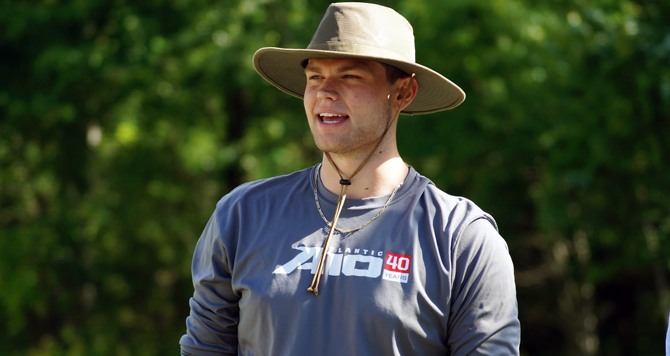
5. Look for the clues to hear what others are really saying.
Griffin (2013 Maine Delegation), says he learned that gathering information beyond a person’s words helps him to know which questions to ask, and which to avoid.
“Look for the subtle clues—90 percent of communication is not through spoken word and it’s difficult to know what people want, especially if they don’t know you well. Listen to the tone of their voice, the way they’re moving their body—are they facing toward me, making eye contact? If they’re not doing those things that person doesn’t want to be fully engaged in a conversation now, and you never want to be the person giving support that’s not needed.”
Griffin is a Camp counselor and currently studying psychology and public health at George Washington University.

6. Whatever your passion, go all in.
“When I first came here, I was a kid that didn’t care about much,” says Basil (2010 Jordanian Delegation). But then he met a fellow camper who blew him away—a kid who took extra math classes not because he struggled in the subject, but because he enjoyed it.
“It taught me to chase something I’m passionate about, and when I got home, I learned to apply myself 100 percent, to manage my time, to study, and to give something my full focus and dedication. It’s hard, but it pays off.”
Basil is a Camp counselor and medical doctor in Jordan.
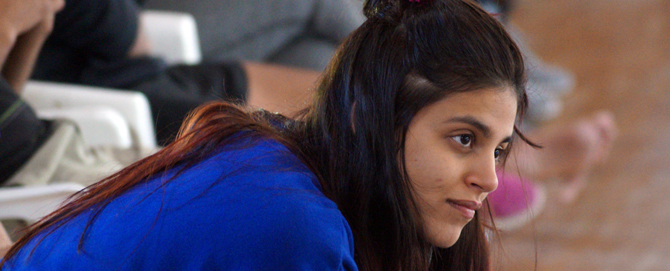
7. Don’t be afraid of conflict.
“Not all conflict and confrontation is bad,” says Zeenia (2009 Indian Delegation). “I’m constantly in conflict with my parents, but for me, acknowledging that we have our differences and working through them helps keep our relationship healthy.”
She says she learned at Camp that when she’s about to butt heads, it’s important to slow down and not respond until she’s in a place where she can clearly express her thoughts—and, most importantly, is ready to listen.
“Sometimes the process of dealing with conflict and finding ways to resolve it is more productive than avoiding it, and actually helps to strengthen relationships rather than break them.”
Zeenia, a dialogue facilitator at Camp, is freelance facilitator and teaches leadership and entrepreneurial skills to children in Mumbai.
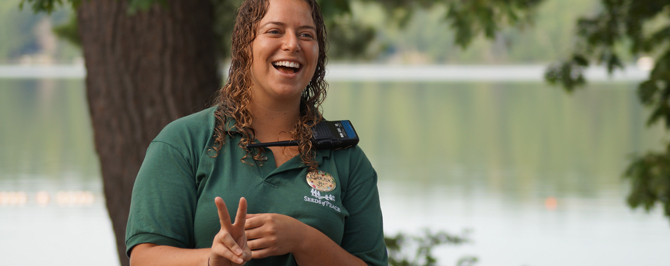
8. Ask yourself difficult questions. The answers might change your future.
As uncomfortable as it is to turn the mirror on yourself, the process—a key part of Camp’s dialogue sessions—can be one of the most transformational.
“My experience in dialogue at Camp was the first time I started thinking about how I connect with people, why I connect with them, and why it matters how it happens,” says Sarah (2006 American Delegation).
“I noticed I would change the things I said, or the way I said them, depending on who I was talking with.”
She says dialogue at Camp forever altered the way she engages with people. “This experience made me feel more grounded but also raised questions to help me continue exploring my journey in college. It helped me find my passion.”
Sarah is the Director of the Seeds of Peace Camp.


You do such important work. How does one get involved in what you do in Maine? I would love an opportunity to attend an event or visit camp. I live in Brunswick, Maine. Thank you for sharing.
All of you are wise beyond your years. It’s gratifying to those of us who have long supported Seeds to hear specific lessons, specific stories, from specific voices. It helps keep us close to and engaged with the mission of Seeds. I really like this latest initiative from the Communications group. Thank you.
Darcie
Excellent and poignant lessons. This is better than a TedTalk. Thank you for sharing, all of you <3
/Kelsey (SOP '05)